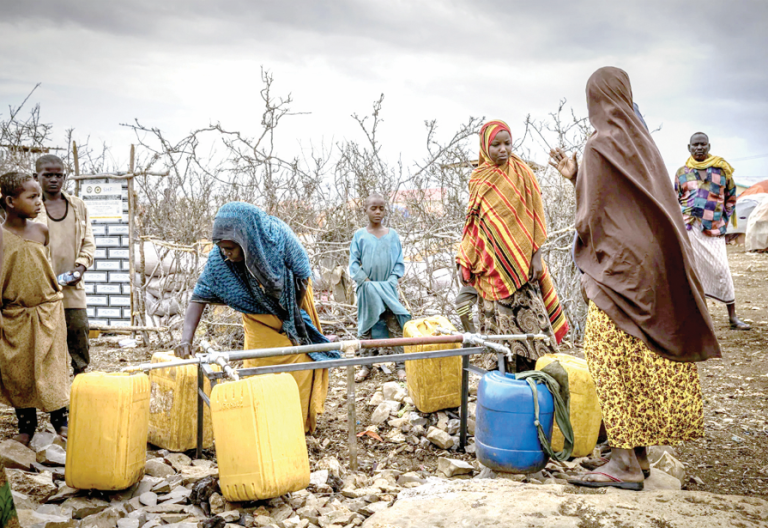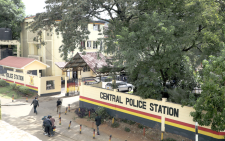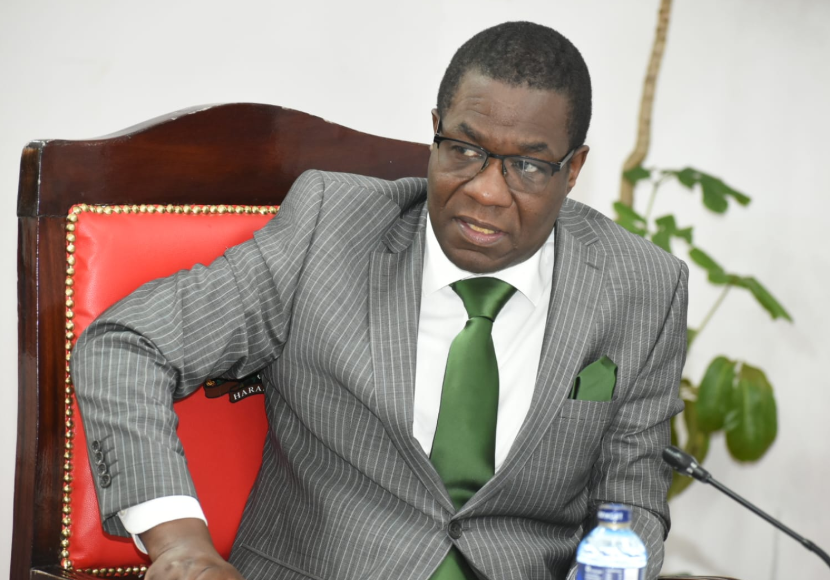Big debt burden weighs down climate crisis-ravaged nations

A new study has revealed how least developed countries and island nations are suffering from crippling debt worsened by global currency fluctuations and climate disaster-ravaged economies.
Latest research by the International Institute for Environment and Development (IIED) show that least developed countries (LDCs) and small island developing states (SIDS) have been required to take out loans for their growth and development, usually in dollars, forcing them to spend billions of dollars annually repaying sovereign debt.
As a result, the poorer countries become vulnerable to currency volatility, and when extreme weather like powerful storms or drought batter their economies, their debt burden grows even bigger.
World Bank-International Monetary Fund (IMF) officials discussed this issue during their annual spring meetings in Washington, DC, a fortnight ago, with officials considering easing the debt burden for LDCs and SIDs.
“With every climate-driven disaster, their requirement to borrow more money increases while their currency simultaneously devalues,” said Ritu Bharadwaj, IIED principal researcher and the paper’s lead author. “Moreover, because the global economy is largely structured around the US dollar, these countries are taking all the risk associated with currency fluctuations,” she added.
IIED researchers examined how debt repayments and currency volatility affected 13 representative countries, and cross-referenced that data with climate modelling, showing a clear link between climate disasters and currency depreciation, which in turn leads to spiralling debt.
Fairer system
To solve the problem, they proposed that international financial institutions offer new loans in local currencies, with debtor nations allowed to swap existing debt for investments in climate, nature or social protection.
“Creditors should take on some of that risk as part of reforms to make the global financial system fairer,” said Bharadwaj.
The research – which focused on 13 countries across Africa, Asia and the Americas, using data from 1991 to 2022 – showed that over the 31-year period, the average value of SIDS currencies fell against the US dollar by around 265 per cent, and that of LDCs by 366 per cent. As a result, the local currency cost of repaying their debts jumped.
Using the 2022 value of the US dollar as a baseline, the cumulative extra cost for SIDS over those three decades was $10.25 billion, the equivalent of three per cent of their GDP per year. For LDCs, the cumulative value of extra repayments was $9.98 billion, equal to 6.6 per cent of GDP.
These huge sums vastly outweigh the amounts SIDS and LDCs can spend on curbing their planet-heating emissions and adapting to climate change, and paying back debt diverts scarce resources from other day-to-day spending on healthcare and education.
Speaking to the authoritative UK-based Climate Home News digital publication’s reporter Vivian Chime, the prime minister of Antigua and Barbuda Gaston Browne said the analysis provides an urgent and credible foundation for action.
“The hidden cost of repaying debt in foreign currencies, especially during times of crisis, is a silent drain on our economies. For every dollar lost to currency depreciation, there is a clinic not built, a road not repaired, a social protection programme left underfunded,” he stressed.
Hydraheaded chaos
Separately, another report published from the Centre for Research on Multinational Corporations (SOMO) and ActionAid Ghana argued that fossil fuel companies have profited from World Bank support for multi-billion-dollar oil and gas projects in Ghana, while its people continue to suffer from power outages, unaffordable electricity and rising public debt.
The researchers said US$2 billion in World Bank funding for oil and gas projects had led to surplus supplies and mainly benefited the private companies running the projects.
Oil and gas projects backed by big multinationals – including the Sankofa gas deal, Jubilee oil and gas project and the West African Gas pipeline, have over-promised but under-performed, the report said. As a result, they have failed to solve Ghana’s energy and power crisis, causing the country to spend more on fuel imports or buying up costly unused gas.
“Ghanaians are paying high prices for electricity they can’t afford, while foreign oil and gas companies reap guaranteed profits,” SOMO acting Executive Director Joseph Wilde-Ramsing told Climate Home, describing the situation as one of utter negligence, exploitation and a climate disaster- rolled into one.
Ghana ActionAid Country Director John Nkaw decried how Ghana has been compelled to enter into energy agreements that are unaffordable and unsustainable.
“These contracts seem to guarantee profits for oil giants while our government struggles to pay off debts,” he said.
The World Bank, which provides guarantees for such projects in the host country to leverage capital investment, the Sankofa Gas Project in Ghana – approved by the bank in 2015 – aims at increasing the availability of natural gas for clean power generation.
Multinational energy firms Eni and Vitol served as private sponsors alongside the Ghana National Petroleum Corporation, while the World Bank provided US$700 million in guarantees to reduce financial and political risks.
Makhtar Diop, then the World Bank Vice President for Africa, said at the time the guarantee was the largest provided by the bank, and would allow the country to leverage up to US$8 billion in foreign direct investment, thereby transforming electricity while enabling lower-carbon power generation, increasing electricity access and reducing oil imports.
The World Bank also provided guarantees to cover any risk eventualities for the West African Gas Pipeline, including US$50 million from its International Development Association (IDA), US$75 million from its Multilateral Investment Guarantee Agency, and US$125 million from Steadfast Insurance Company.
These political risk guarantees helped the project get to financial closure, with the bank saying the project would not have gone forward without them.
Reassessing risk
Responding to the SOMO/ActionAid report, a World Bank spokesperson said the bank remains committed to ensuring its interventions promote the long-term prosperity of the country “for the benefit of all Ghanaians”.
The bank is helping stabilise Ghana’s energy sector financially through various forms of assistance, the spokesperson said, to promote energy access and affordability of electricity tariffs, with the bulk of their support being provided on concessional terms.
Last year the bank agreed a US$260 million programme with Ghana to improve the financial stability and energy efficiency of its power sector, which could reduce system losses and fossil fuel consumption.
IMF strategy chief Ceyla Pazarbasioglu agrees there is an urgent need to address the high debts service burden facing many countries, adding that the situation is becoming more acute in the current global economic environment.
Noting the growing challenges facing vulnerable low- and middle-income countries, IMF Managing Director Kristalina Georgieva agreed the global lender must be more active in debt restructuring processes.
Antigua and Barbuda’s Gaston Browne said the findings of the IIED research provide evidence to advance reforms that are “fair, feasible, and necessary” even as SIDs face worsening climate shocks, deepening debt burdens, and volatile currency markets.
SOMO and ActionAid Ghana are calling for greater transparency and fairness in global energy investments, saying all energy contracts that shift financial risk onto countries should be reassessed.
“As the US calls for the World Bank to continue investing in fossil fuels, our latest report is a stark warning on what the World Bank’s fossil fuel investment can do to a country’s economy and energy sector,” said SOMO’s Wilde-Ramsing.












